The Tenth Parallel: Dispatches from the Fault Line between Christianity and Islam by Eliza Griswold (2010)

There exists a fault line near the tenth parallel north of the equator where the two great proselytizing religions of the last two millennia meet.In centuries past, desert traders and merchant seamen carried Islam along with their goods, halting only where they confronted unsurpassable natural barriers or the expansion of European Christianity in the colonized regions of Asia and Africa.
Making Islam Democratic: Social Movements and the Post-Islamist Turn by Asef Bayat (2007)

In the wake of the recent events in Tunisia, Egypt, Libya, and elsewhere in the Middle East, many try to predict whether Islam can exist together harmoniously with democracy. In this book, Bayat successfully dismantles the presumptions that constitute this discourse, by stating in the beginning that “the question is not whether Islam is or is not compatible with democracy, or by extension, modernity, but rather under what conditions Muslims can make them compatible.”
Review of Piracy and the Making of the Spanish Pacific World, by Kristie Flannery (2024)
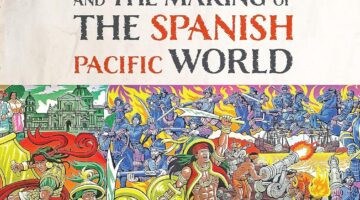
Kristie Flannery’s groundbreaking first book, Piracy and the Making of the Spanish Pacific World is not only about how Spanish colonial rule worked in the Philippine Islands. Rather, Piracy and the Making of the Spanish Pacific World analyzes how colonialism, forms of capitalism, and religion forged political, economic, and religious alliances across Asia, the Americas, […]
Review of The Devil’s Cup: A History of the World According to Coffee by Stewart Lee Allen (1999)

Inspired by a never-finished ceremonial cup of coffee in Ethiopia and a Jules Michelet quote attributing the Enlightenment to the advent of coffee, author Stewart Lee Allen dives head-first into a voyage across the world to trace the path coffee took out of Africa. In The Devil’s Cup: A History of the World According to […]
Review of A Ritual Geology: Gold and Subterranean Knowledge in Savanna West Africa (2022) by Robyn d’Avignon
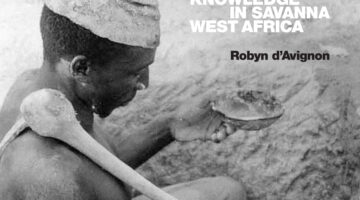
Using the goldfields in Kedougou in southeastern Senegal, historian and anthropologist Robyn D’Avignon, in Ritual Geology, explores the instrumentality of African indigenous knowledge systems in developing modern mining economies in French West Africa from the nineteenth century to the present. D’Avignon defines ritual geology as a set of practices, prohibitions, and cosmological engagements with the […]
Review of India in the Persian World of Letters by Arthur Dudney (2022)
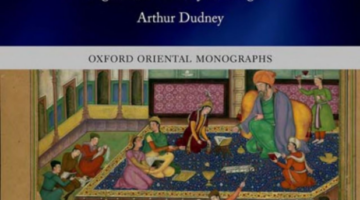
Before the 19th century, Persian was an important lingua franca and connected various territories, communities, and people across the Middle East and South Asia. Arthur Dudney’s book is a valuable account of the cultural history of language and literature in this “Persianate Cosmopolis” during the 18th century. The book contextualizes the learned figures of the […]
Review of Going the Distance: Eurasian Trade and the Rise of the Business Corporation, 1400-1700 (2020) by Ron Harris
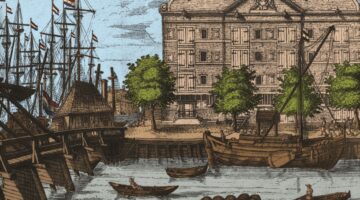
It’s an old question: how did northwestern Europe, seemingly an economic backwater around 1400 CE, rise to trade dominance in just a few centuries? In Going the Distance: Eurasian Trade and the Rise of the Business Corporation, 1400-1700, Ron Harris offers a fresh answer. He traces the financial tools and organizational forms in Eurasia that […]
IHS Workshop: “Wherever the Flag Flies”: Conquest, Sovereignty, and Vital Records in Early Colonial Algeria
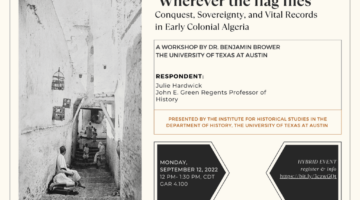
This is a chapter from “In the Beginning I Had a Name: Symbolic Violence, the Name, and Algeria’s Colonization,” a book about the colonization of Algerian names in the nineteenth century. Overall, Algerians saw their names transformed as France remade Algeria in its own image, exerting a monopoly of symbolic violence in pair with their […]
A House in the Homeland: Armenian Pilgrimages to Places of Ancestral Memory

Between 2007 and 2015, I traveled with small groups of Armenians from the diaspora who were “returning” to a place they had never been. Each one was seeking the hometown or village lost to their own parents or grandparents who had survived the Armenian genocide of 1915. And so, although we were traveling mostly in […]
